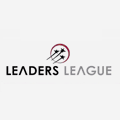The protection of Industrial Property rights in Brazil is set forth in the constitutional and infra-constitutional plan, respectively by Article 5th, item XXIX of the Constitution of the Federative Republic of Brazil and by the provisions of Act No. 9279/96 (Industrial Property Act).
Among its different modalities stands out the utility models and patent of inventions granted to their respective applicants under the conditions established in the IP Act referred above. However, for such innovations to be effective and granted by Brazilian Patent and Trademark Office (BPTO), the applicant must go through several administrative steps until the corresponding patent is granted. For all the stages to be successful, the participation of a specialized technical body working closely with the client is paramount.
More than counting on a specialized technical team, however, the key to a successful patent strategy is the interaction between the technical and legal team. Considering the level of complexity in the industrial property scenario, the dialectic between Law and other technical areas gains remarkable importance and reveals, without a doubt, that industrial property is a system that is not only multidisciplinary, but also interdisciplinary.
There are numerous particularities inherent to the Brazilian patent system - both legal and administrative - that must be observed by the patent applicant, such as: the scope of the matter for which protection is required, the patentability requirements and searches for prior art, administrative deadlines, form of wording, amongst others. Not only that, but it is fundamental that the specialization of the technical team itself is also in line with the specialization addressed by the technical solution to be protected.
Although not mandatory, it is recommended, for example, that the draft of a patent application involving a pharmaceutical formulation be written and accompanied by a professional graduated in pharmacy or organic chemistry as well as specialized in industrial property. Likewise, a patent application involving a technical solution to a technical problem in the telecommunications area should be handled by a professional skilled in telecommunications In this regard, the telecommunications engineering and knowledgeable in industrial property - and so on.
The pursuit for the protection of intangible assets through the patent system, however, does not end in the administrative sphere; in fact, it is where it begins.
Under the terms of art. 42 of the IPA, a patent guarantees its owner the right to prevent third parties from performing acts of economic exploitation on the subject matter of the patent without proper authorization. Therefore, after the patent is granted, it is possible that the owner needs to take measures to enforce his rights and guarantee the exclusivity seeking to prevent illicit activities practiced by free riders, which, at first, usually takes place through extrajudicial means and, in case the attempt of an amicable resolution is frustrated, through the court.
Likewise, once a patent is granted, it is subject to administrative or judicial nullity proceedings filed by third parties with a legitimate interest - nullity actions may be filed at any time during the term of the patent, pursuant to IPA art. 56.
Likewise, once a patent is granted, it is subject to administrative or judicial nullity proceedings filed by third parties with a legitimate interest - nullity actions may be filed at any time during the term of the patent, pursuant to IPA art. 56.
In this regard, the technical-legal interaction discussed here takes up its main place well before the beginning of a litigation. Whether for the preparation of a cease and desist letter to warn third parties about the patent infringement practices, or for the preparation of a document that ensures the non-infringement of a product (FTO - freedom to operate), the cooperation between attorneys and engineers is essential.
This means that for the correct discovery of a lawsuit whose cause of action concerns the existence of a patent (allegations of infringement, non-infringement, or nullity), the technical team comprised with professionals specialized in patent matters, and with knowledge in industrial property, will provide the technical arguments that will support the client’s needs and the correct strategy to be adopted.
In sequence, the legal team enters the scene providing support with legal arguments, materializing the inherent interdisciplinarity of industrial property. As in a symbiosis of a perfect harmonic relationship between two organisms, the technical and legal teams promote a complementary relationship, promoting a win-win situation for the client, who will be better instructed in both fronts: administrative and judicial.
When the controversy is taken to the Courts – whether in a patent infringement action or a nullity action - its outcome can only be settled through the production of expert evidence conducted by an impartial expert, trusted by the Court, as provided in art. 464 et seq. of the Brazilian Code of Civil Procedure.
Although the Brazilian case law is unanimous in the understanding that the Court is not bound to the expert report presented during discovery, the Brazilian practice shows that there are few cases in which the Court goes against the expert’s conclusion - and that, for only one reason: the expert is the one who holds the technical knowledge that is the object of the patent controversy, while the Judge holds the legal knowledge.
Therefore, even if lawyers and judges have extensive legal knowledge, if the controversy revolves around the claims of the patent - which technically define the scope of its protection and, consequently, of any allegations of infringement, validity or invalidity - the interdisciplinarity with the technical area specialized in the object of the discussed patent is not only important, but essential to raise the quality of the technical discussion raised in the judicial scenario.
In fact, the Brazilian Code of Civil Procedure itself raises the relevance of such interaction when it defines that both parties in a litigation discussion must indicate their respective technical assistants and questions for the support of the expert phase. Such assistants, preferably, must have technical expertise in the subject matter of the patent in controversy - since the improved understanding of the invention field discussed in the case records may promote even more technical and better-quality discussions, especially in meetings with the Expert, as well as in the preparation of convergent or divergent reports to be presented after the delivery of the expert report, as allowed by art. 477, § 2nd of the CC`P.
Therefore, just as in an orchestra, in which each instrument needs to enter at the right time, and which notes should be accurately played, so that the final melody can be impeccable, the same happens in a team specialized in industrial property, which will provide the necessary consultancy in patent-related matters: both the technical and legal teams need to be in tune and aligned, complementing and integrating each other so that, in the end, the client can have the final strategy with excellence.







